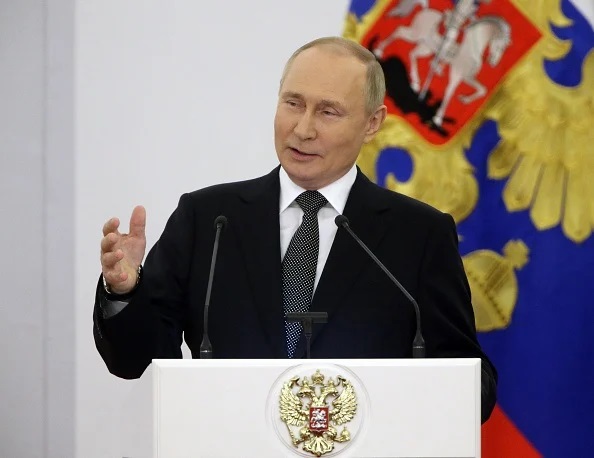Photo Credit: Getty Images
The catalyst for this potential boycott stems from Russia's invasion of Ukraine, a violation of international law that has sparked condemnation from the international community. As casualties mount and humanitarian crises worsen, EU leaders are under increasing pressure to take decisive action.
Several EU nations, including Germany, France, and the Baltic states, are considering boycotting Russian goods and services as a means of exerting economic pressure on the Kremlin. This move signals a unified front against Putin's aggression and sends a clear message that such actions will not be tolerated in the modern world.
The proposed boycott is not without its challenges and complexities. Economic ties between EU nations and Russia run deep, with energy dependence being a particularly thorny issue. Russia is a major supplier of natural gas to Europe, and any disruption to this flow could have significant economic repercussions for both parties. However, EU leaders are exploring alternative energy sources and ramping up efforts to reduce reliance on Russian gas in the long term.
Furthermore, the boycott could have ripple effects across global markets, impacting industries ranging from finance to agriculture. It may also strain diplomatic relations between the EU and Russia, leading to further escalation of tensions.
However, the potential benefits of a boycott outweigh the risks. By hitting Russia where it hurts – its economy – the EU can exert meaningful pressure on Putin to de-escalate the conflict and pursue diplomatic solutions. Moreover, a united front from EU nations demonstrates solidarity in the face of aggression and reaffirms the bloc's commitment to upholding international norms and values.
The boycott also serves as a powerful symbol of the EU's stance on human rights and sovereignty. By standing with Ukraine, the EU reaffirms its support for the principles of democracy and self-determination, sending a message to autocratic regimes everywhere that such actions will not go unchallenged.
In addition to economic measures, the EU is exploring diplomatic and humanitarian avenues to address the crisis. This includes providing support to Ukraine, imposing targeted sanctions on Russian officials and entities involved in the conflict, and working with international partners to find a peaceful resolution.
Ultimately, the EU nations' threat to boycott Putin's war against Ukraine represents a defining moment in geopolitics. It underscores the importance of collective action in addressing global challenges and sends a clear message that aggression and disregard for international law will not be tolerated. As tensions continue to simmer, the world watches closely to see how this pivotal moment unfolds and whether it will pave the way for a more peaceful and just future.
Composed by: Hedwig Francis mwendwa


